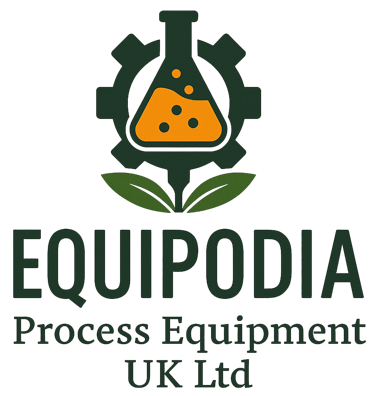How Glass-Lined Reactors Improve Corrosion Resistance in Chemical Processing
Understanding glass-lined reactiors
Dr C Kingsleigh
10/14/20252 min read


In modern chemical and pharmaceutical manufacturing, corrosion control is one of the most critical design considerations for process equipment. Reactors are constantly exposed to aggressive acids, alkalis, solvents, and high temperatures. Glass-lined reactors solve this challenge by combining the mechanical strength of steel with the chemical inertness of glass, offering exceptional protection against corrosion and abrasion across a wide range of processes.
What Is a Glass-Lined Reactor?
A glass-lined reactor (also called an enamel-lined or vitreous-lined reactor) is a steel vessel whose internal surfaces are coated with a specially formulated fused glass enamel layer. This glass coating—typically 1.5 to 2.3 mm thick—is applied to all wetted surfaces and fired at high temperature (≈ 850 °C), creating a permanent, non-porous, and chemically inert bond between steel and glass.
Key components include:
- Carbon steel shell: provides structural strength and pressure resistance.
- Glass lining: protects against chemical attack and ensures product purity.
- Agitator, baffles, and nozzles: also glass-lined or made from corrosion-resistant alloys.
Mechanism of Corrosion Resistance
The corrosion protection of a glass-lined reactor arises from the inertness and impermeability of the glass layer.
1. Chemical Inertness: Glass is resistant to most acids, oxidizers, salts, and organic solvents. The silica-rich composition prevents ionic exchange, so corrosive species cannot penetrate or react with the steel substrate.
2. Barrier Protection: The enamel layer is continuous and non-porous, acting as a barrier to moisture, ions, and process media. This eliminates galvanic or pitting corrosion, common in metallic vessels.
3. Thermal Stability: Glass maintains integrity up to ~250 °C continuous operating temperature (depending on process). The coefficient of thermal expansion is carefully matched to steel to minimize stress during heating/cooling cycles.
4. Surface Smoothness: The ultra-smooth inner surface reduces material adhesion, minimizes product buildup, and simplifies cleaning—an important advantage in multipurpose plants.
Comparative Performance: Glass-Lined vs Stainless Steel
For processes involving hydrochloric acid, sulfuric acid, chlorinated solvents, or similar aggressive media, glass-lined vessels outperform metal alternatives in long-term corrosion resistance and product purity.
Quality & Design Standards
Equipodia’s glass-lined reactors are engineered and tested according to:
- ASME Section VIII Division 1 (Pressure Vessel Code)
- PED 2014/68/EU compliance for European installations
- EN 14483 (Glass-Lined Equipment — Design & Fabrication Standards)
Each reactor undergoes:
- Spark testing at 20 kV to verify glass integrity
- Visual and microscopic inspection for surface uniformity
- Thermal cycling tests to ensure adhesion durability.
Typical Applications
Glass-lined reactors are widely used in:
- Pharmaceutical synthesis (API and intermediate production)
- Agrochemical and specialty chemical manufacturing
- Dye, pigment, and resin production
- Acid chlorination and halogenation processes
- Food and cosmetic industries requiring non-contaminating equipment.
Maintenance & Lifecycle
Proper handling ensures decades of service life:
- Avoid sudden temperature shocks (> 120 °C differential).
- Use PTFE-lined gaskets and non-metallic tools to prevent chipping.
- Inspect visually after every major campaign.
- Re-spark test annually to verify coating integrity.
When maintained correctly, a quality glass-lined reactor can remain in service for 20 years or more, with negligible corrosion damage.
Conclusion
Glass-lined reactors provide an optimal balance between mechanical strength, chemical inertness, and operational longevity. By eliminating corrosion at its source, they safeguard product purity, reduce maintenance costs, and extend equipment life—key benefits for chemical and pharmaceutical plants aiming for reliability and compliance.
Call to Action
If you’re evaluating corrosion-resistant reactor solutions for chemical or pharmaceutical manufacturing, Equipodia’s engineering team can assist with design optimization, certification guidance, and lifecycle cost analysis.
➡️ Reach out to us to Request a Technical Consultation.
Equipodia Process Equipment UK Ltd
Customer Services
contact@equipodia.co.uk
+44-191 390 2300
© 2025 Equipodia. All rights reserved.
Quality chemical process equipment.
Registered in England No 16609310
Registered Address: 128 City Road, London EC1V 2NX, UK
